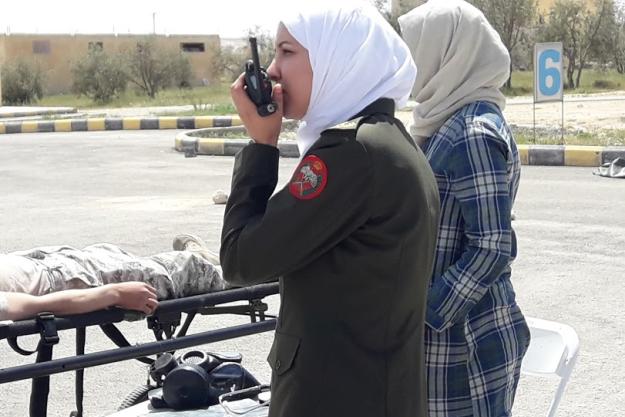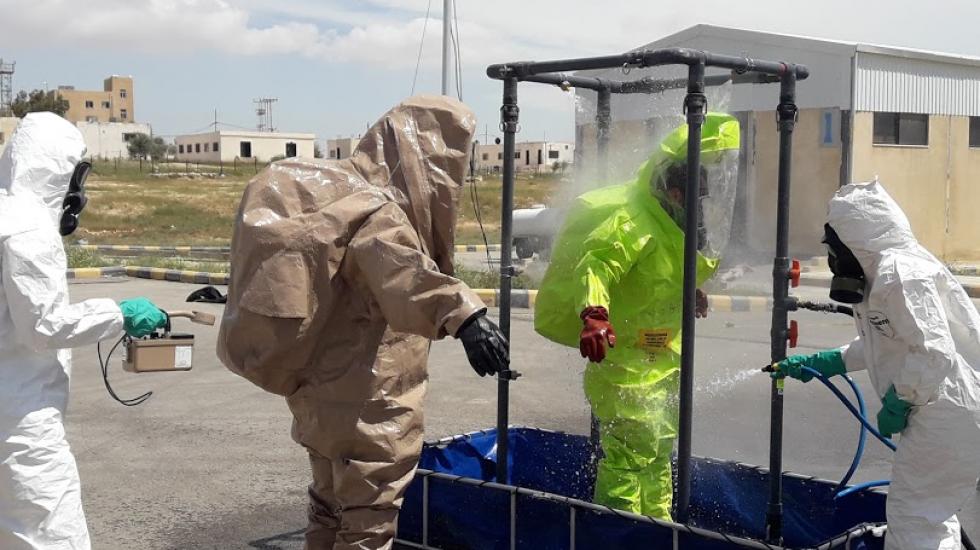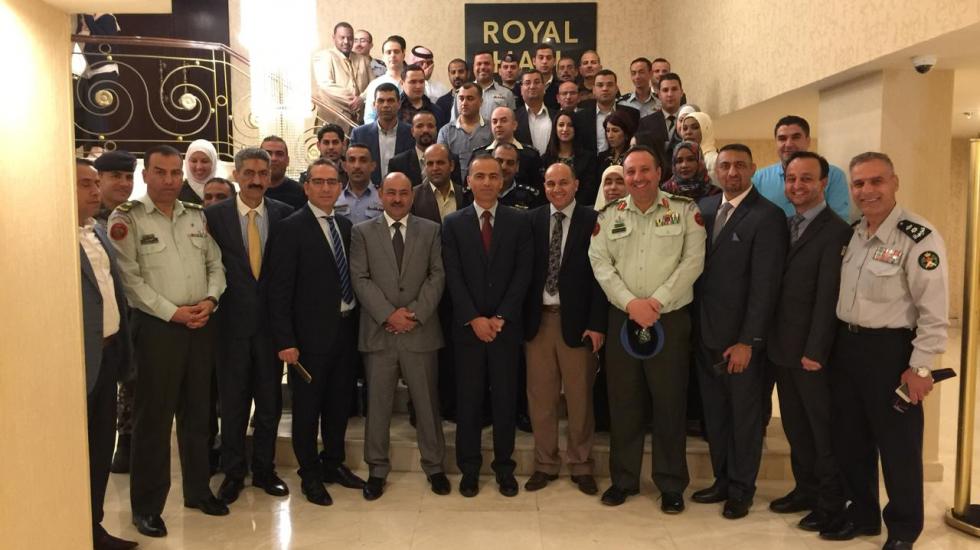
Participants at an Advanced and Exercise training course on Assistance and Protection against Chemical Weapons
THE HAGUE, Netherlands — 23 April 2019 — First responders from Arabic speaking Member States of the Organisation for the Prohibition of Chemical Weapons (OPCW) enhanced their capability to in respond to chemical weapon emergencies during an advanced training course held in Amman, Jordan from 13 – 18 April.
Thirty-five first responders from nine OPCW Member States attended the Advanced and Exercise training course on Assistance and Protection against Chemical Weapons, co-organised by the OPCW’s Technical Secretariat and the Jordan Armed Forces, and conducted in the CBRN training centre of excellence in Amman.
The course aims to enhance the capacity of national governments in the region to respond to incidents involving chemical warfare agents and toxic industrial chemicals.
Senior Program Officer from the Assistance and Protection Branch of the OPCW, Mr Shahriar Khateri, underlined that first responder teams must be fully operational from the moment a chemical emergency strikes and that “successful first responders must be subject matter experts as well as be physically and mentally prepared to confront some of the most challenging situations”.
The attendees were trained in using protective equipment; monitoring, detection and decontamination operations; as well as emergency response system and planning. The programme also included a field exercise on managing a chemical incident.
The training was the second stage of the regional Assistance and Protection training cycle for Arabic speaking OPCW Member States in the Middle East and North Africa, which started with a basic course held in Tunis, Tunisia in November 2018.
The participants included representatives from Bahrain, Iraq, Jordan, Lebanon, Morocco, Qatar, Sudan, Tunisia and United Arab Emirates.
The event was supported by a voluntary contribution from the Government of Germany.

Participants at an Advanced and Exercise training course on Assistance and Protection against Chemical Weapons

Participants at an Advanced and Exercise training course on Assistance and Protection against Chemical Weapons
Background
As the implementing body for the Chemical Weapons Convention, the OPCW, with its 193 Members, oversees the global endeavour to permanently eliminate chemical weapons. Since the Convention’s entry into force in 1997, it is the most successful disarmament treaty eliminating an entire class of weapons of mass destruction.
Over 96% of all chemical weapon stockpiles declared by possessor States have been destroyed under OPCW verification. For its extensive efforts in eliminating chemical weapons, the OPCW received the 2013 Nobel Peace Prize.
